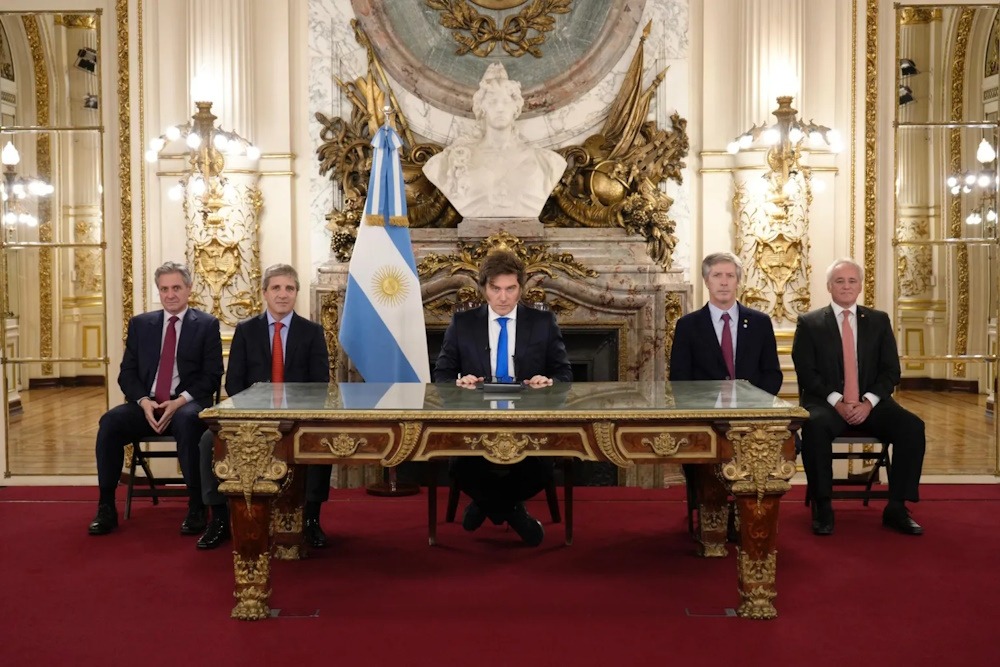Argentine President Javier Milei attributed “political panic” to the market turmoil observed on Friday, as the nation approached significant midterm elections, resulting in a sharp decline of the peso and negatively impacting the country’s sovereign risk. This week, the Central Bank took action to support the peso, which ended the week at 1,515 pesos to the US dollar, surpassing the upper limit of the trading band established by the government.
During a speech, Milei attributed the “spiralling political panic in the market and generating enormous disorganisation in terms of sovereign risk” to the Peronist opposition. In defense of his stringent austerity measures, the leader of La Libertad Avanza charged that the opposition was “throwing a spanner in the works” to undermine him politically. The peso has experienced a decline of 4.48 percent over the course of a week, reflecting increasing market concerns as the October mid-terms approach, a situation that may impede President Javier Milei’s reform agenda. On Thursday night, Economy Minister Luis Caputo assured that the Central Bank would sell “every last dollar” of its reserves to prevent the peso from collapsing. “We are not going to deviate from the programme,” he stated.
The depreciation of the peso occurs as Milei, a proponent of free-market policies whose election was celebrated by investors in 2023, faces the most significant crisis of his presidency. His aura of electoral invincibility was shattered on September 7 by his party’s defeat in the Buenos Aires Province election, regarded as a measure of his backing ahead of the October 26 mid-terms. Milei has lost significant support due to a corruption scandal involving his sister and chief-of-staff, Karina Milei. Congress, meanwhile, is mounting greater opposition to his efforts to reduce the size of the state. The lower house Chamber of Deputies on Wednesday voted against his veto of a law concerning funding for public universities and the nation’s largest paediatric hospital. Earlier this month, Congress successfully overturned his veto of a law concerning allowances for individuals with disabilities. The political headwinds have led investors to abandon the peso. The Central Bank intervened on Wednesday to support the currency for the first time in five months. In just two days, it sold at least US$432 million in reserves to stabilize the currency. Under a US$20-billion bailout agreed with the International Monetary Fund in April, Argentina is prohibited from selling dollar reserves until the exchange rate hits the upper limit of the floating band.
In recent weeks, the government has utilized Treasury dollars to address the peso’s depreciation. The dollar-peso exchange rate is a contentious issue in Argentina, where the majority of individuals prefer to save in U.S. dollars instead of the struggling peso. Economists caution that Milei is maintaining the peso at a perilously high value, which undermines the competitiveness of Argentina’s exports. The government is currently confronting debt maturities totaling approximately US$8 billion leading up to January, amidst its most challenging political period. Milei stated on Friday that Argentina is “very advanced” in negotiations to secure a loan from the US Treasury, led by his ally Donald Trump, which would enable him to bolster his reserves to address those maturities. ‘It’s a matter of time,’ the Argentine president stated in an interview.

